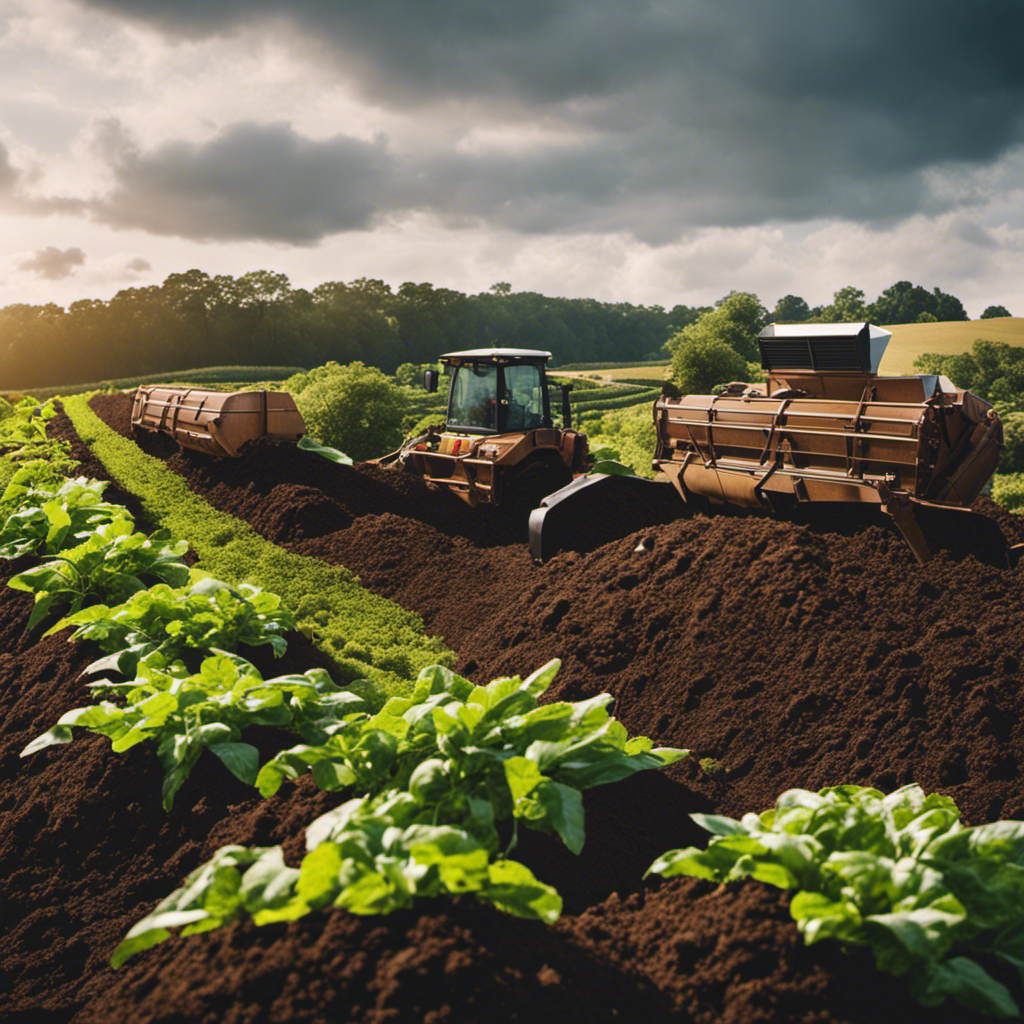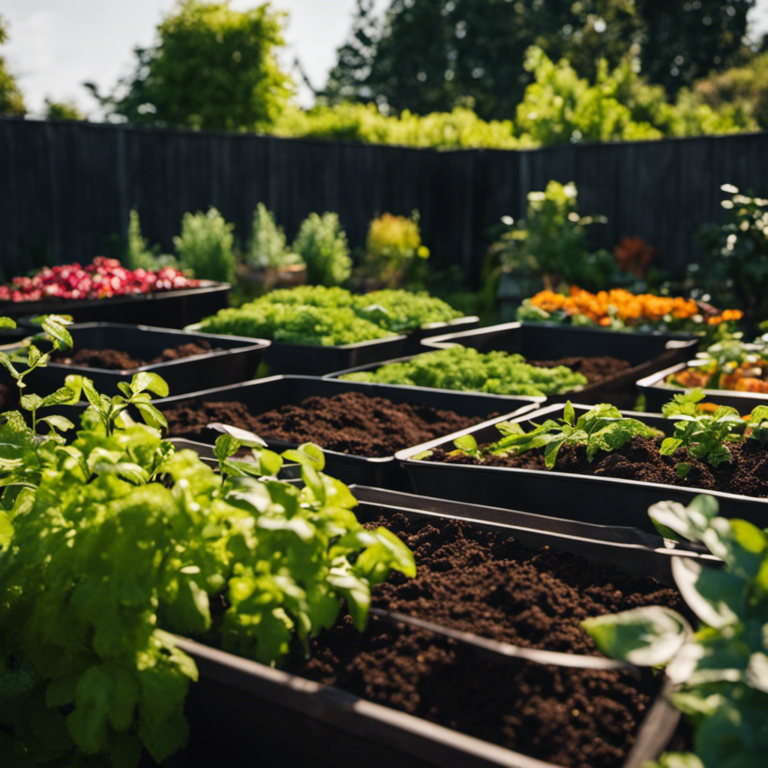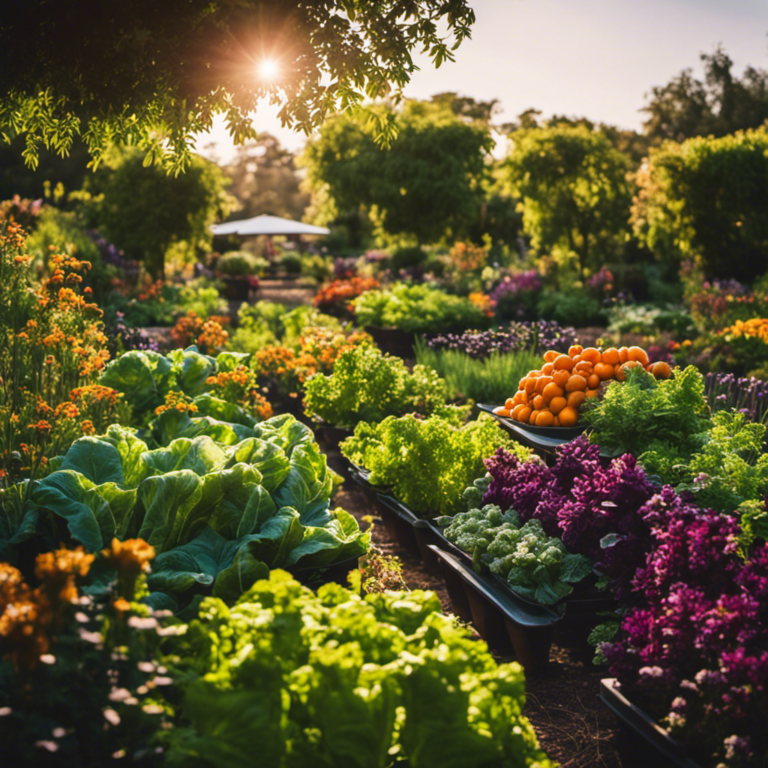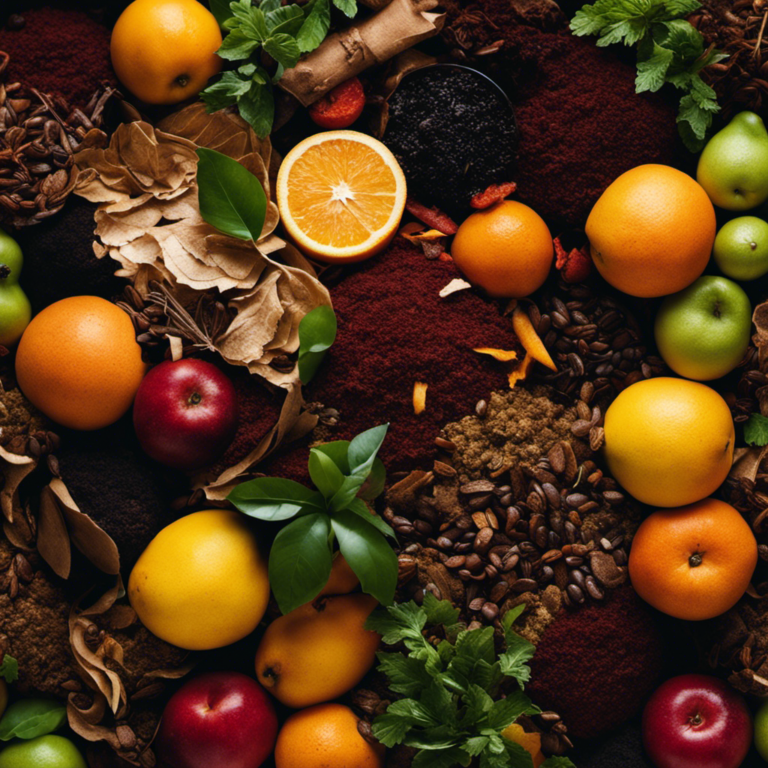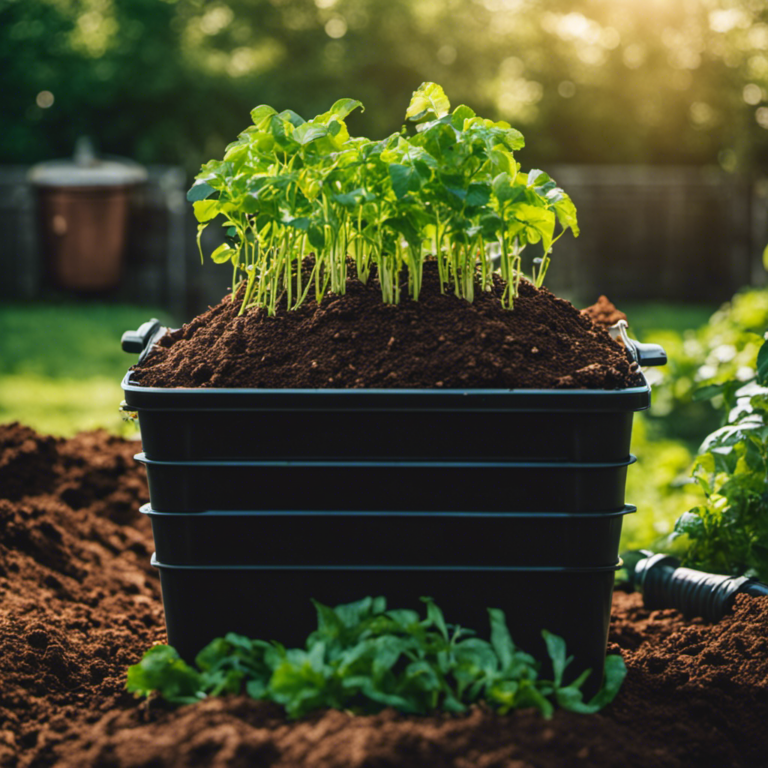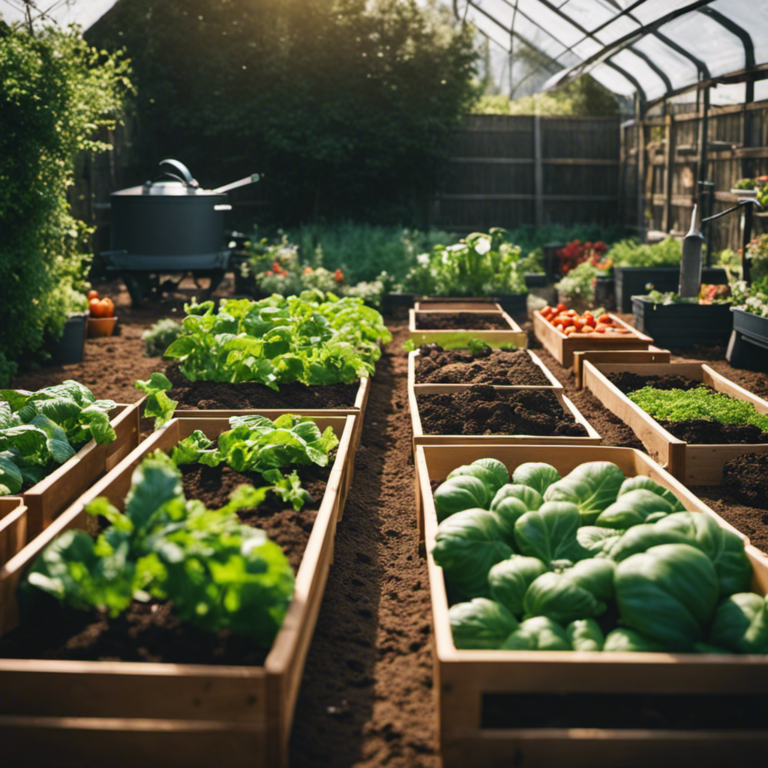I have some exciting information to share with you all!
Get ready to take your organic farming to the next level with these advanced composting techniques. We’ll explore methods such as using worms, hot composting, the Bokashi method, green manure, and aerated compost tea production.
These techniques will help you efficiently transform waste into nutrient-rich compost, contributing to sustainable farming success.
So, let’s roll up our sleeves, grab a shovel, and dive into the details of these effective composting methods.
Together, we can make a positive impact on the Earth and cultivate thriving crops.
Key Takeaways
Advanced composting techniques play a crucial role in promoting effective organic farming. By implementing methods like worm composting, hot composting, bokashi composting, green manure composting, and aerated compost tea production, farmers can improve the quality of their soil and achieve higher crop yields.
These techniques foster a harmonious relationship between the soil and plants, creating a sustainable ecosystem that benefits future generations. Just like a well-tuned instrument produces beautiful melodies, advanced composting techniques contribute to the success and longevity of organic farming practices.
Composting With Worms
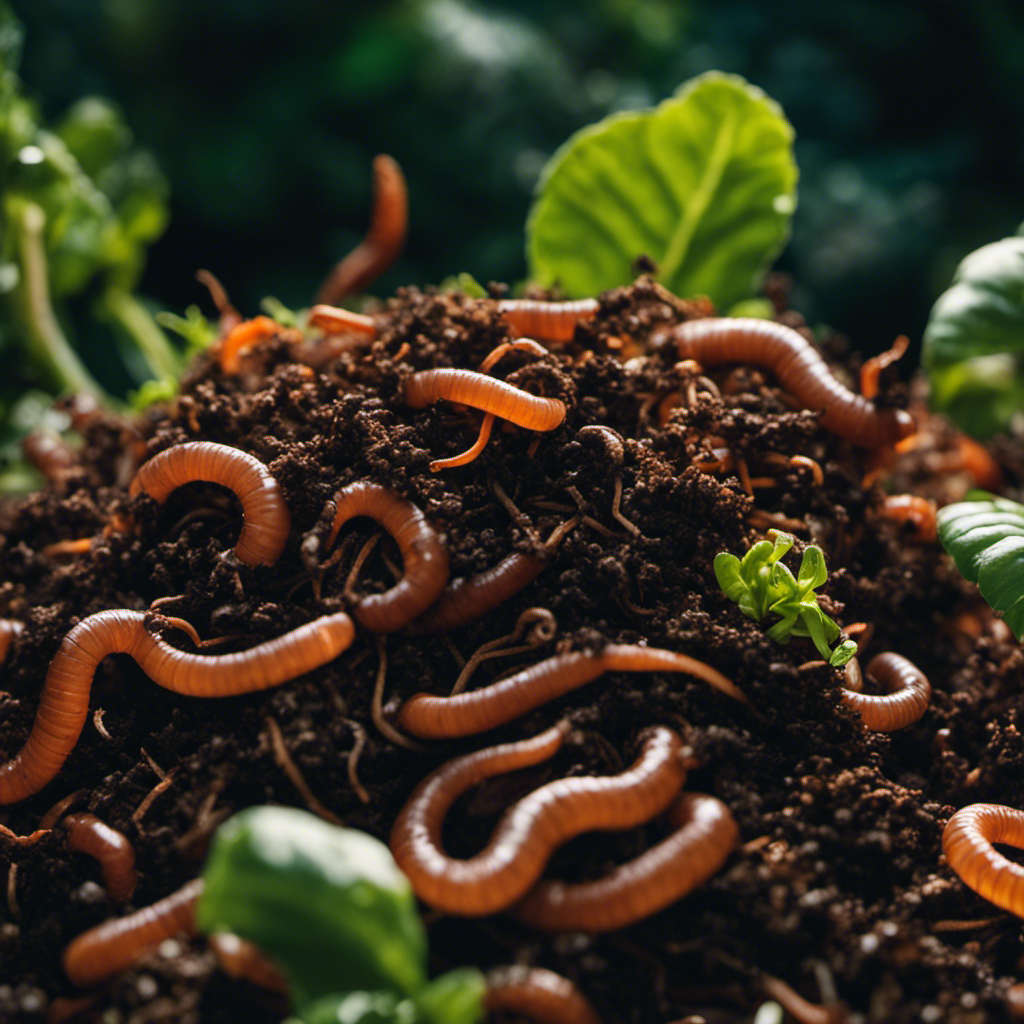
Composting With Worms
When it comes to effective organic farming, one composting technique that I’ve found particularly beneficial is composting with worms. This method, known as vermicomposting, offers several advantages for both the environment and the quality of the resulting compost.
Vermicomposting involves using specific species of worms, like red wigglers, to break down organic waste materials into nutrient-rich compost. These worms consume the waste, digest it, and produce a substance called worm castings. These castings are highly fertile and contain essential nutrients that promote plant growth.
One key advantage of vermicomposting is its ability to accelerate the decomposition process. The worms’ digestive systems break down organic matter more efficiently than traditional composting methods, resulting in a quicker turnaround time for usable compost. Additionally, vermicomposting produces compost that’s richer in essential nutrients, making it even more valuable for organic farming.
The vermiculture process also helps reduce waste and landfill usage. By diverting organic waste materials, such as kitchen scraps and yard trimmings, into the vermicomposting system, we can significantly decrease the amount of waste that ends up in landfills. This not only benefits the environment but also promotes sustainable practices in organic farming.
Hot Composting Techniques
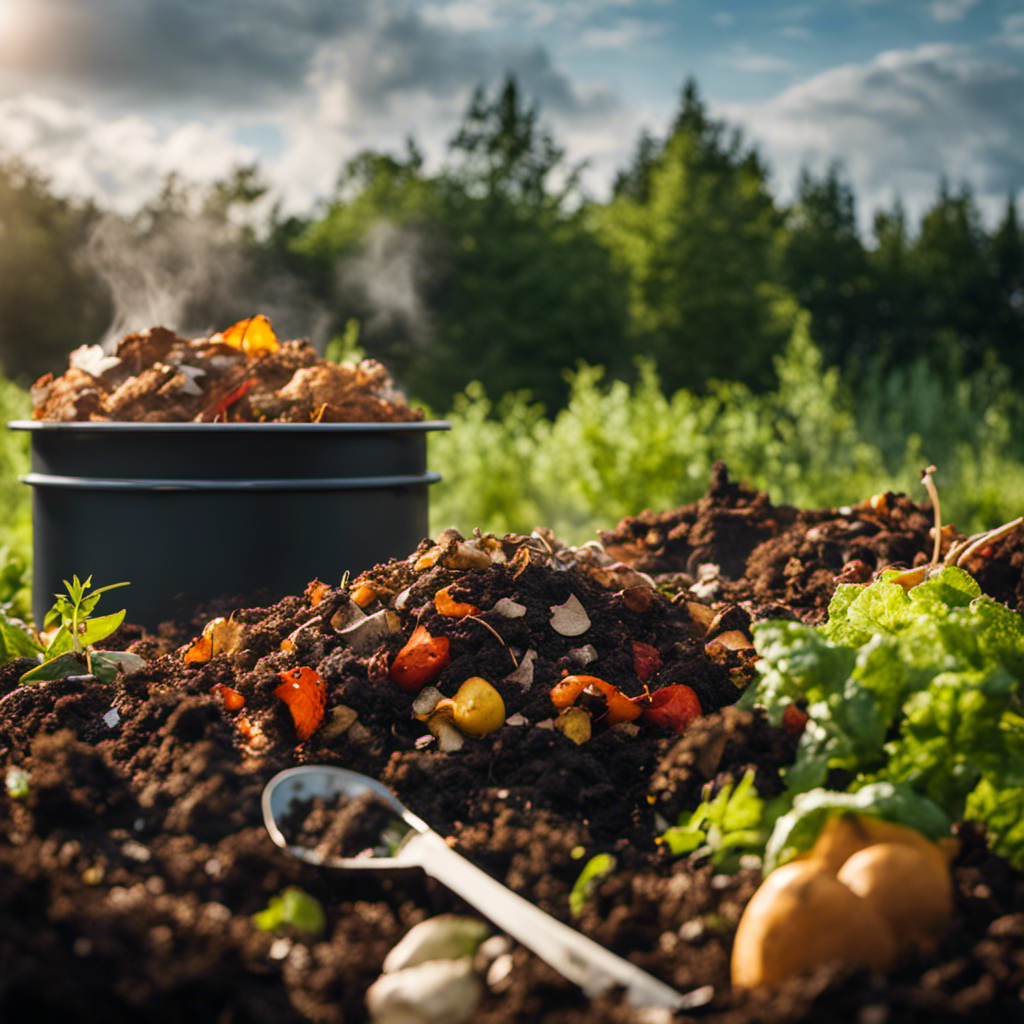
Hot composting is an effective method used in organic farming to accelerate the decomposition process. This technique involves actively managing the compost pile and controlling the temperature to promote rapid breakdown of organic matter. Temperature control is crucial for the success of hot composting.
The ideal temperature range for a hot compost pile is between 130°F and 160°F (55°C and 71°C). These high temperatures facilitate the quick decomposition of organic materials, while also eliminating weed seeds, harmful bacteria, and pathogens. It’s important to monitor and adjust the compost pile to maintain the desired temperature.
Hot composting offers several benefits. Firstly, it speeds up the composting process, resulting in faster production of compost. This is particularly advantageous for farmers who require large quantities of compost for their operations. Secondly, the heat generated during hot composting helps to eliminate pests and weed seeds, reducing the risk of infestations in the garden or on the farm. Lastly, hot composting enriches the compost with essential nutrients, making it a valuable soil amendment for organic farming.
By utilizing hot composting techniques, organic farmers can efficiently produce nutrient-rich compost while also controlling pests and weed seeds. This method provides a sustainable solution for improving soil health and promoting the growth of healthy crops.
Bokashi Composting Method
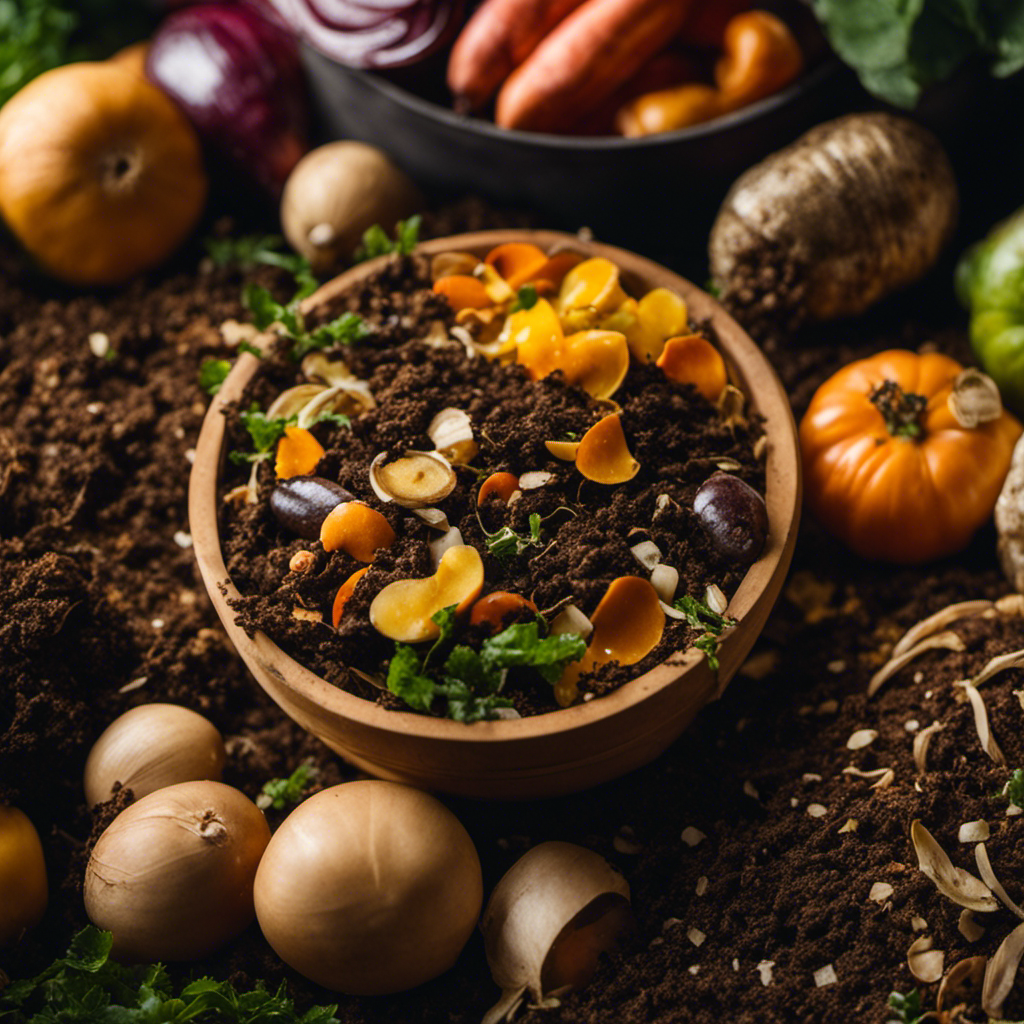
Next, I’ll discuss the Bokashi composting method, which is a unique approach to organic farming that builds upon the principles of hot composting. Bokashi composting is a fermentation process that utilizes beneficial microorganisms to break down organic matter. This method offers several advantages for organic farming.
The Bokashi composting process involves using a special composting mix that contains effective microorganisms (EM). Organic waste, such as kitchen scraps and plant materials, is layered with the EM mix in an airtight container. The microorganisms then ferment the waste, converting it into a nutrient-rich compost.
One of the main benefits of Bokashi composting is its ability to compost a wide range of organic materials, including meat, dairy, and citrus peels, which are typically not recommended for traditional composting methods. This allows for greater flexibility in waste management on organic farms.
Additionally, Bokashi composting is a faster process compared to traditional composting methods. The fermentation process takes only a few weeks, as opposed to months for hot composting. This means that farmers can quickly obtain compost to nourish their plants and improve soil fertility.
Moreover, Bokashi composting helps enrich the soil with beneficial microorganisms. These microorganisms enhance soil health and promote the growth of beneficial bacteria and fungi, which, in turn, support plant growth and suppress harmful pathogens.
Composting With Green Manure
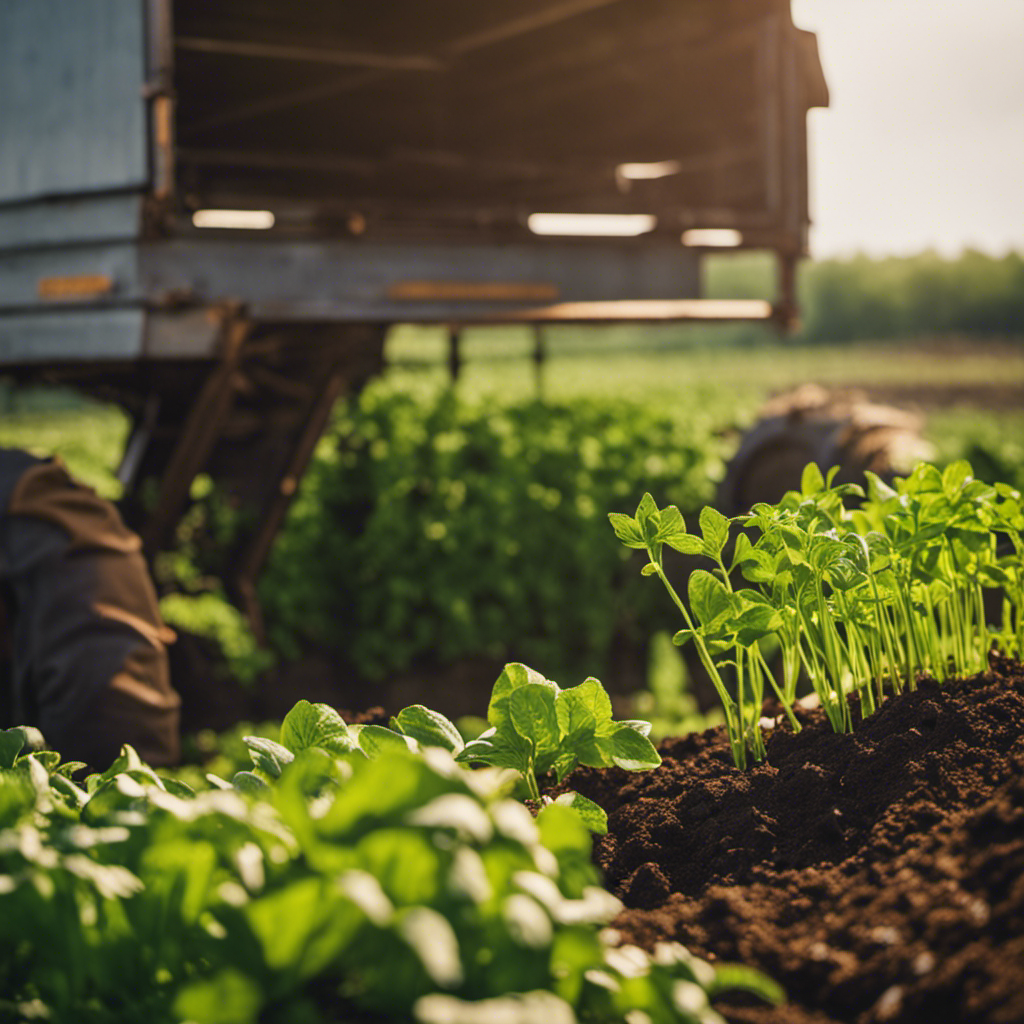
Composting with green manure is a valuable technique in organic farming that improves soil fertility, enhances nutrient cycling, and promotes sustainable agricultural practices. Instead of relying solely on chemical fertilizers, this practice involves the use of cover crops that are specifically grown to be incorporated into the soil as organic matter. These cover crops, also known as green manure crops, include legumes like clover, alfalfa, or vetch.
Here are four key points to understand about composting with green manure:
-
Nitrogen Fixation: Legume cover crops have a unique ability to convert atmospheric nitrogen into a form that plants can readily absorb and utilize. Through a symbiotic relationship with nitrogen-fixing bacteria in their root nodules, legumes convert nitrogen gas into ammonium, a form of nitrogen that’s essential for plant growth.
-
Increased Organic Matter: When green manure crops are incorporated into the soil, they add substantial amounts of organic matter. This organic matter improves soil structure, enhances water-holding capacity, and increases nutrient availability, ultimately leading to healthier and more productive crops.
-
Weed Suppression: Cover crops create a dense canopy that shades out weeds, reducing competition for nutrients, water, and sunlight. This natural weed suppression helps to maintain a clean and healthy growing environment, reducing the need for synthetic herbicides.
-
Soil Erosion Prevention: The extensive root systems of cover crops play a crucial role in preventing soil erosion caused by wind and water. By anchoring the soil, composting with green manure helps to preserve valuable topsoil and maintain the overall integrity of the land.
Composting with green manure provides numerous benefits for organic farmers. It not only enriches the soil with essential nutrients but also supports ecological balance by reducing the reliance on synthetic inputs. By adopting this practice, farmers can create healthier and more sustainable agricultural systems that contribute to the long-term health of both the environment and the crops they grow.
Aerated Compost Tea Production
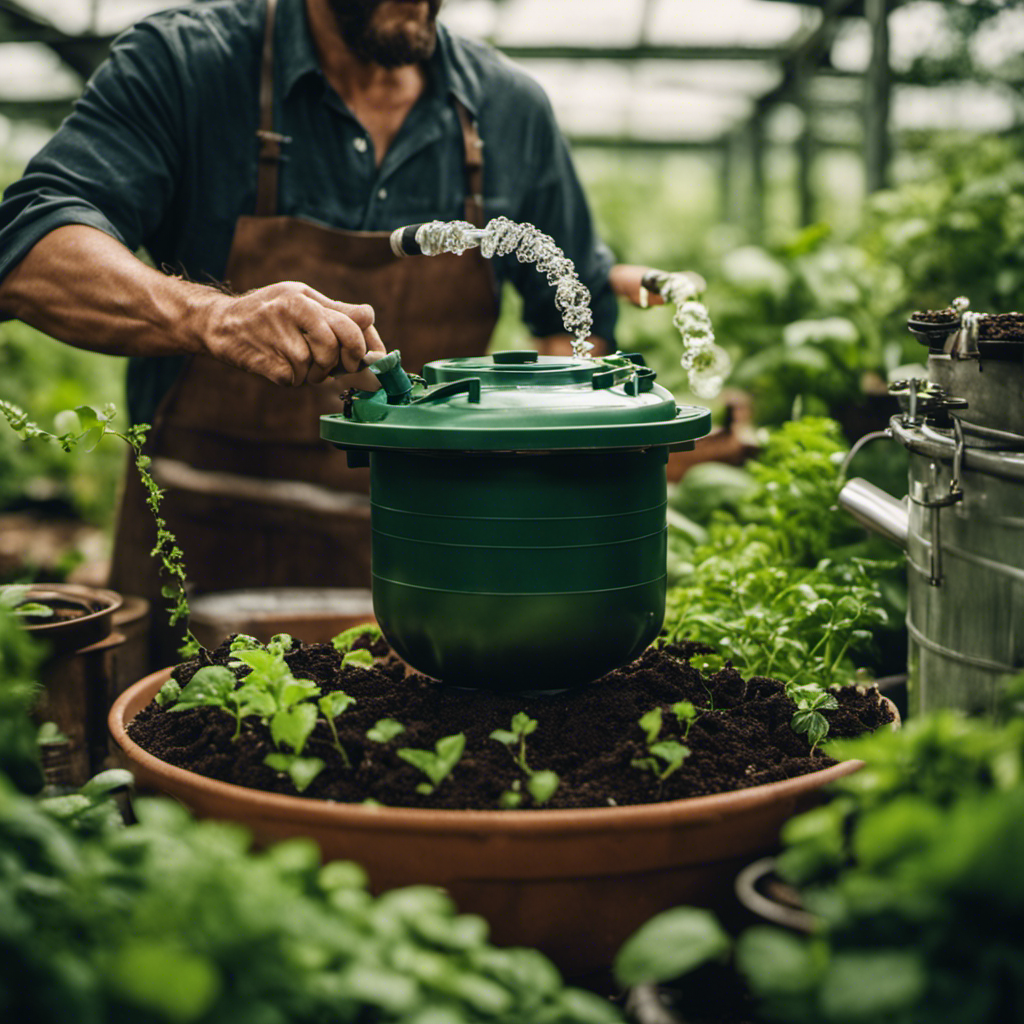
Producing aerated compost tea is an effective technique for organic farming. This liquid fertilizer is packed with beneficial microorganisms and nutrients. To make aerated compost tea, simply steep compost in water and add aeration to encourage the growth of aerobic bacteria and fungi.
The benefits of aerated compost tea are numerous. It improves soil structure by increasing the population of beneficial microorganisms, which in turn enhances nutrient availability and uptake by plants. Additionally, it helps suppress plant diseases and pests by introducing beneficial microorganisms that outcompete harmful organisms. Furthermore, it boosts plant growth and productivity by providing readily available nutrients. Lastly, it promotes biodiversity and ecological balance in the soil, leading to healthier and more resilient ecosystems.
Creating your own DIY aerated compost tea setup is relatively simple. All you need is a container, water, compost, and aeration equipment such as an air pump and diffuser. By following a few basic steps and maintaining the right conditions, you can produce high-quality aerated compost tea to nourish your plants and improve soil health.
Conclusion
Advanced composting techniques play a crucial role in promoting effective organic farming. By implementing methods like worm composting, hot composting, bokashi composting, green manure composting, and aerated compost tea production, farmers can improve the quality of their soil and achieve higher crop yields.
These techniques foster a harmonious relationship between the soil and plants, creating a sustainable ecosystem that benefits future generations. Just as a well-tuned instrument produces beautiful melodies, advanced composting techniques contribute to the success and longevity of organic farming practices.
